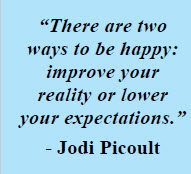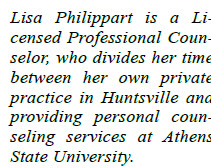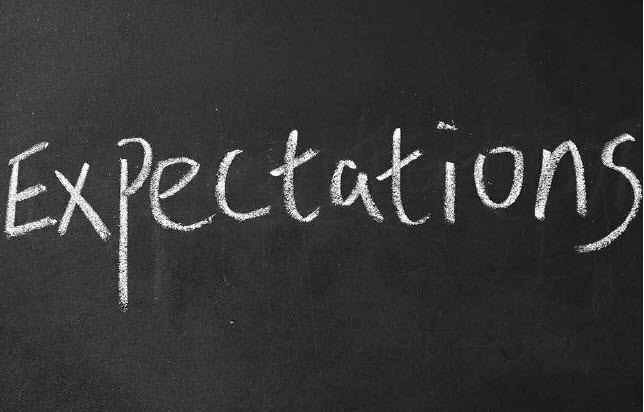
If you struggle with excessive or unhealthy expectations in your life, taking even a little bit of time to reflect on those expectations can yield pretty incredible results in terms of your relationships, mood, and general wellbeing. Try to be on the lookout for the expectations you hold. Anytime you have an interpersonal conflict, for example, there’s a good chance some expectations are at play. And once you notice a few of them, you can begin to ask some questions.
Are my expectations relevant? Many expectations came into being years ago, perhaps when you were a child, and have never really been examined or updated since. This means their relevance for you and your current life could be questionable. Here is an example: Maybe you struggle in social situations, unable to speak up or express your opinions. After some reflection, you realize that the real reason for holding back is because of an expectation as a young child that if you spoke up, you were made fun of. As a child, you stuttered in front of classmates in school, and were laughed at. So at this point, the expectation was at least relevant to your life. Now, as a successful professional, you have overcome the stuttering issue, no longer being made fun of. But because you never really examined that old expectation, it just continued to run in your brain…influencing your moods, emotions, behaviors, choices, and even self-esteem. By identifying the expectations you hold, you can then ask how relevant that expectation is to your life currently. And the more you can show yourself how irrelevant an expectation is, the less likely you are to be negatively affected by it.
 Are my expectations realistic? Some expectations may be perfectly relevant but also unrealistic. For example, maybe you have the expectation that people should be polite to servers. And most likely 98 out of 100 people would probably agree. If it is true that people should be polite to servers, is that expectation 100% accurate? Your expectation that everyone should be polite to servers has zero effect on whether that inconsiderate person across the restaurant will end up being polite to the server. But because you get frustrated and upset when you see people not being polite, this expectation has some very real and predictable downsides with no upside.
Are my expectations realistic? Some expectations may be perfectly relevant but also unrealistic. For example, maybe you have the expectation that people should be polite to servers. And most likely 98 out of 100 people would probably agree. If it is true that people should be polite to servers, is that expectation 100% accurate? Your expectation that everyone should be polite to servers has zero effect on whether that inconsiderate person across the restaurant will end up being polite to the server. But because you get frustrated and upset when you see people not being polite, this expectation has some very real and predictable downsides with no upside.
It is difficult to let go of these types of expectations because it somehow just feels wrong. The key here is to see that giving up your expectation of what’s true doesn’t mean you are invalidating the truth of it. It’s perfectly possible to believe that people should be polite to servers without expecting that they will be. What’s more, letting go of that expectation doesn’t mean that you can’t act on that belief…you could choose to intervene with that rude customer. Expectations can prolong and intensify difficult emotions without making any positive change in your or the world. So why hold on to them? When you have identified an expectation, especially expectations of people, ask yourself what you know about them. Think back on how they’ve behaved or acted in the past. Then try your best to separate what you would like to be the case, from what is likely to be the case…and revise your expectations to be in line with the latter.
 Are my expectations helpful? Expectations are always doing something, exerting some kind of force or effect on us. So it’s worth asking — Are my expectations helping or hurting me? We often convince ourselves that an expectation is necessary or unavoidable because it’s true. But just because it is true doesn’t make it helpful. There are situations where expectations can be a positive force in your life, especially if they meet the criteria of being relevant, realistic, and helpful. But because expectations so easily devolve into unhealthy defense mechanisms, it’s essential to be aware of the expectations you hold and how they impact you. Maybe the best expectation is expecting that our expectations aren’t very helpful! Next time you reflect on your expectations, remember to look for relevancy, credibility, and positivity. To let go of unhealthy beliefs, stay thoughtful and intentional with your expectations.
Are my expectations helpful? Expectations are always doing something, exerting some kind of force or effect on us. So it’s worth asking — Are my expectations helping or hurting me? We often convince ourselves that an expectation is necessary or unavoidable because it’s true. But just because it is true doesn’t make it helpful. There are situations where expectations can be a positive force in your life, especially if they meet the criteria of being relevant, realistic, and helpful. But because expectations so easily devolve into unhealthy defense mechanisms, it’s essential to be aware of the expectations you hold and how they impact you. Maybe the best expectation is expecting that our expectations aren’t very helpful! Next time you reflect on your expectations, remember to look for relevancy, credibility, and positivity. To let go of unhealthy beliefs, stay thoughtful and intentional with your expectations.
By: Lisa Philippart







